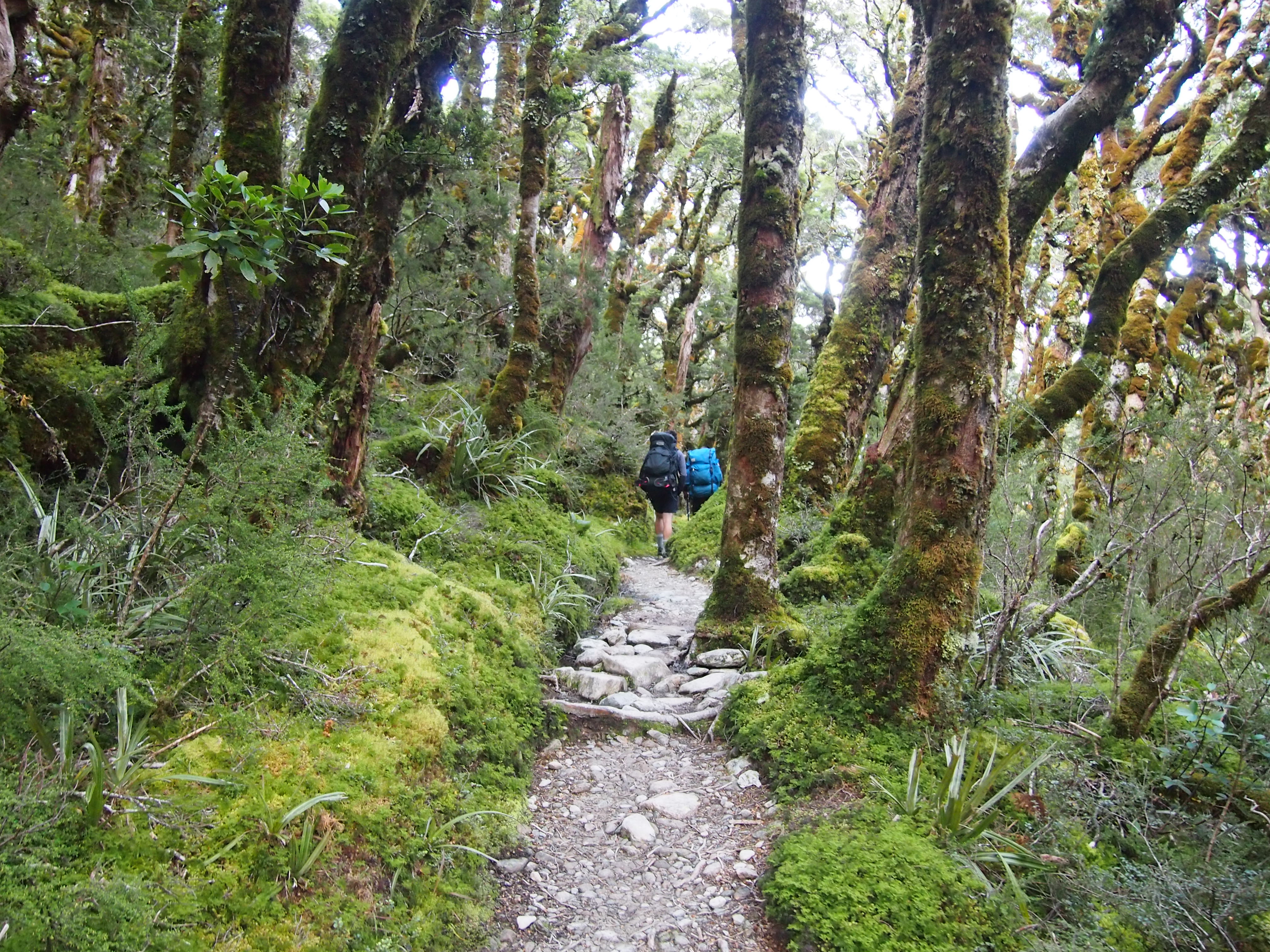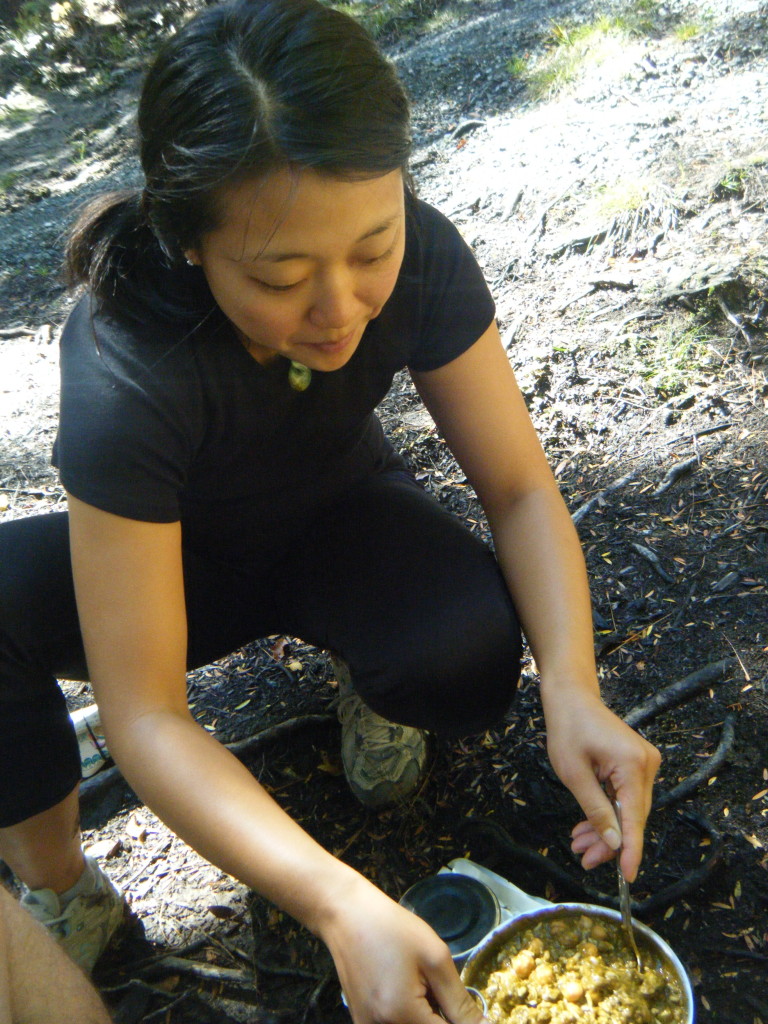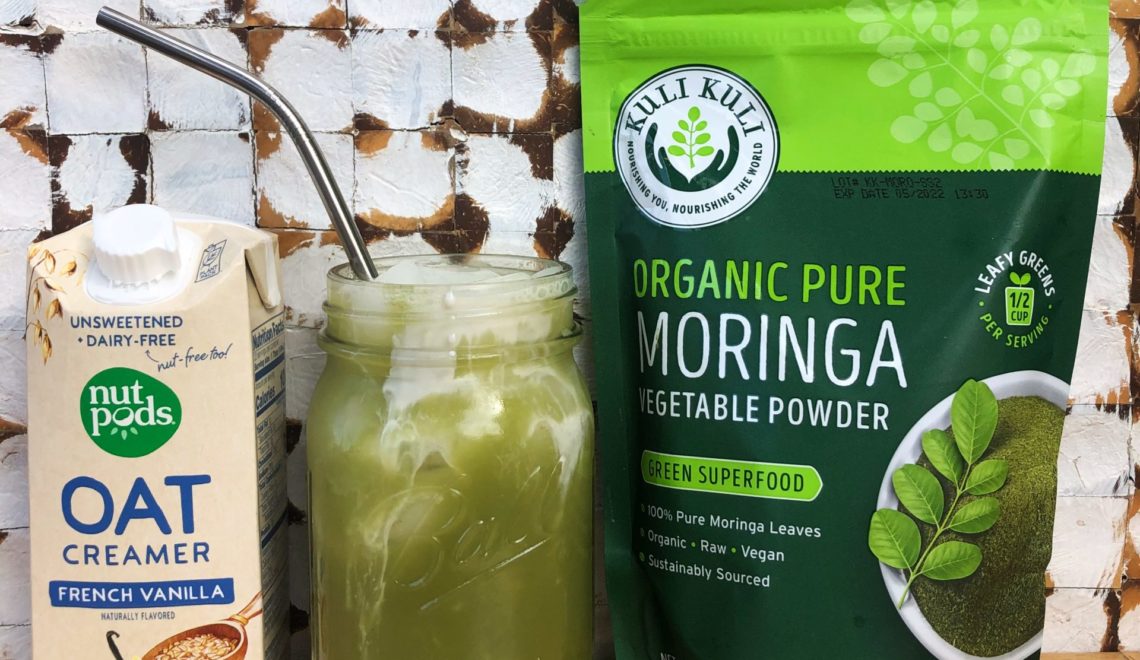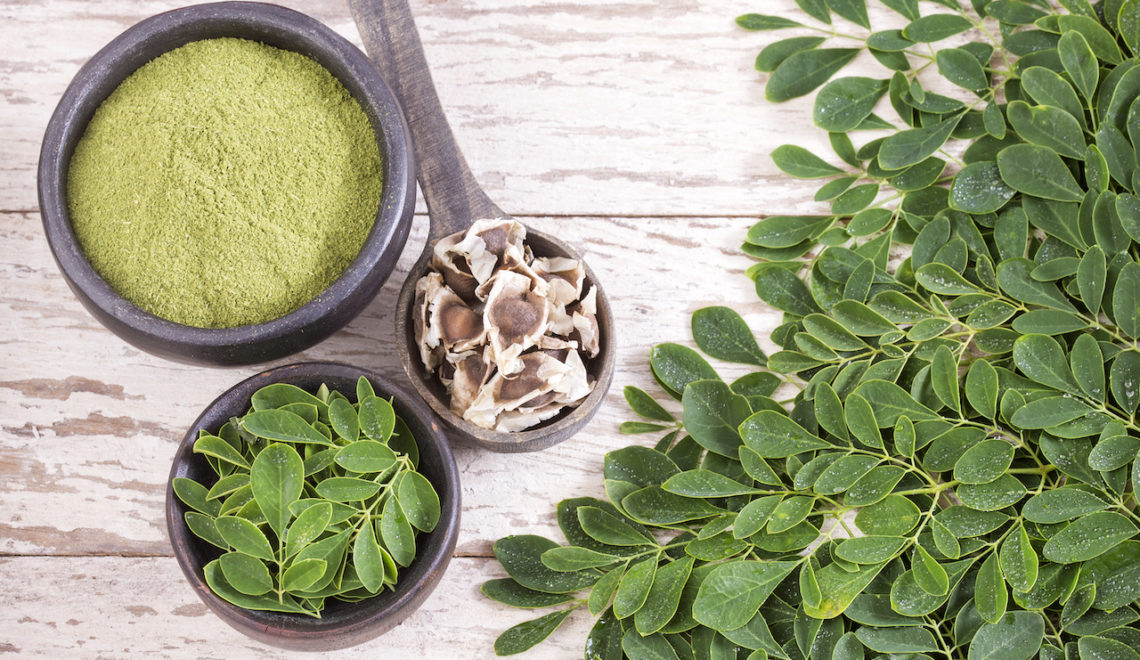
While backpacking, hiking, or camping, it can be challenging to get the adequate amount of nutritionally dense calories that one needs on a long journey. This is further complicated with the challenge of not overloading ones backpack with extra weight or trash. Enter moringa, your lightweight source of complete amino acids, vitamins A and C, calcium, iron, magnesium, and potassium–to name only a few!
Why are nutritionally dense foods important? Well, as your body works, small tears occur in your muscles. Consuming sufficient levels of amino acids to help repair those tears will allow you to grow stronger and alleviate the fatigue and pain you feel in your muscles after walking ten or more miles a day with a backpack.
The best way to plan what to bring on the trail is to find a good ratio of calories to weight (i.e. picking calorie dense foods), ensure a good ratio of carbohydrates, protein, and fats (a common recommendation is 50/15/35, respectively), and be mindful of packaging (a reseal bag of nuts is better than an aluminum can that can’t be compressed).
Using some of my own previous backpacking experience and suggestions from others, here’s a list of ways to incorporate moringa powder into classic, everyday meals while on the trail, as well as ways to save on weight, space, and tweaks for extra flavor and nutrition.
BREAKFAST
Instant Oatmeal – cook and sprinkle with 1 tsp of moringa powder
- – For flavor: bring along chopped nuts like pistachios, dehydrated berries, chia seeds, or (on your day 1 or 2) fresh fruits like bananas
- – For weight: use powder milk and just add water, or skip the dairy component
Moringa Tea – swap for your coffee or normal black tea in the morning
SNACKS
Moringa Shake – use a blender bottle (also your extra water container), add mlik, shake with moringa
- – For flavor: consider adding drinking chocolate (usually on hand for evening hot beverages) or chia seeds (think of it like boba) for omega 3 fatty acid
- – For weight: use powder milk and add water, use a sandwich bag to mix your “shake”
Moringa Bars – okay, so this is a cheat, unless you have time to make your own bars at home before you left, buy some from the site or your local store. Guaranteed clean nutrition at 190 calories per 45 gram bar.
LUNCH & DINNER
Wraps – for those tortilla wraps you’ve packed with your canned/pouched meat, cheese, olives, mayo, or just good ‘ol peanut butter and jelly, sprinkle 1 tsp of moringa on top
- – For flavor: use a full fat mayo, bring some day 1 fresh veggies like lettuce, pre-cook some boiled eggs (there are mixed reviews on boiled eggs; please note the CDC recommends boiled eggs be thrown out after 2 hours if warm, but myself and many other hikers have taken eggs on 3+ day hikes with no issues)
- – For weight: single mayo packets (like from a café), pick meats in pouches with the exact amount you need per serving (no spoilage, minimal waste)
Noodle Packets – whether these are Lipton, Knorr, ramen noodles, or mac and cheese, every hiker I’ve known has tried to get away with these lightweight, easy and quick to cook noodles on the trail. Jazz yours up by adding 1 tsp of moringa powder after cooking.
- – For flavor: pouches of tuna or chicken, dehydrated peas or other veggies
- – For weight: pouches versus cans or containers, pick dehydrated meats
Now you can leave those multi-vitamins at home and bring your moringa. Don’t forget to get creative! Throw moringa on top of your heated soups, pasta sauce, mashed potatoes and more. Always remember to consume in moderation and drink plenty of water.
Happy trails!











